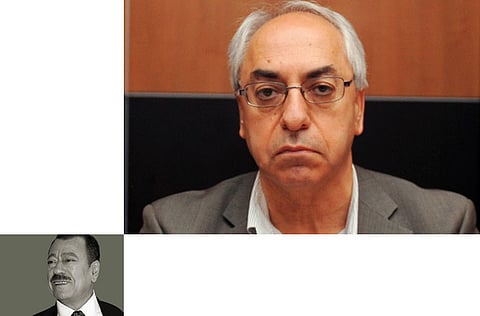Civil war in Syria can become proxy war for big powers
There is an increasingly combative edge to Russian and Chinese diplomacy

The Syrian opposition, the Syrian National Council (SNC), announced on Sunday that they have elected Kurdish activist Abdul Basit Sida as their new leader. Like his predecessor Burhan Ghalioun, Sida lives in exile in Europe. The Syrian crisis itself is also becoming internationalised, and risks becoming a theatre for diplomatic standoffs that have less to do with Syria than reviving the Cold War paradigm, with an added twist — Islamic sectarianism.
At their meeting in Beijing last week, the Shanghai Co-operation Organisation (SCO), led by Russia and China, re-iterated their opposition to military intervention, western interference and imposed regime change in Syria.
This stance remained unaltered despite two recent massacres in as many weeks. The first, at Al Houla on May 25, saw 108 slaughtered while on Wednesday more than 80 were shot, slashed or burnt to death in Al Qubeir, a small town near Homs. Locals say that more than half the victis were women and children and insist the atrocities were carried out by shabiha militiamen, supported by regime troops. UN monitors attempting to visit Al Qubeir to ascertain the truth for themselves were shot at by Syrian troops.
The SCO (which also comprises Kazakhstan, Kyrgyzstan, Tajikistan, and Uzbekistan) has been revitalised in recent months by Russia and China’s diplomatic challenge to the West.
The differences currently centre on Syria and what SCO spokespeople have referred to as the West’s ‘neo-interventionism’ which they say is based on a spurious ‘dislike’ of ‘a country’s system’. Both the Chinese and Russian ‘systems’ have, of course, permitted the use of extreme violence in supressing uprisings and protests. Both fear contagion from the Arab Revolutions and may prefer a template where rebellion is ruthlessly and bloodily supressed.
Meanwhile the ‘Friends of Syria’, including US Secretary of State Hillary Clinton, also met on Wednesday. Hosted by Turkish Foreign Minister Ahmet Davutoglu in Istanbul, this group included high-level envoys from the UK, EU, Jordan, Egypt, Saudi Arabia, Kuwait, UAE, Qatar, Tunisia and Morocco.
The Friends of Syria called for Bashar Al Assad to step down and some wanted to implement Chapter Seven of the UN Charter, which authorises the use of the force to carry out UN Security Council decisions. A spokesman for Clinton said that she had not discounted this option.
The composition of the Friends of Syria and the SCO, whose meeting was also attended by Iran, is indicative of a polarisation within the international community which has been intensifying since the onset of the Arab Spring and which is a mixture of Cold War alignments and the Sunni-Shiite sectarian divide.
The initial fault lies, I believe, with the western countries that failed to consult adequately with Russia and China over Resolution 1973 (authorising the Libyan no-fly zone) and ignored their abstentions: an approach that Russian President Vladimir Putin described as being “like a medieval crusade”. Over Syria, both countries have vetoed Security Council resolutions condemning the regime.
While the SCO remains resolutely opposed to military intervention, there are indications that it has been shaken by the brutality of the recent massacres and might endorse a ‘Yemen-style’ political solution which would see the head (Al Assad) changed but the body politic remaining the same.
In a speech to the UN on Thursday, special envoy to Syria, Kofi Annan, acknowledged SCO sensibilities by emphasising that the international community must act together — implicitly warning the West against unilateral action. Annan outlined a ‘road map’ which would see Al Assad stepping down, possibly going into exile in Russia, making way for a newly elected parliament and president. Annan mirrored Chinese diplomatic terminology by emphasizing that ‘both sides’ must contribute to resolving the crisis.
There is an increasingly combative edge to Russian and Chinese diplomacy, as new lines are drawn. On Thursday they announced that they want the West’s nemesis, Iran, to be part of Annan’s proposed ‘contact group’ for Syria.
But while the world’s great powers jostle for position, the Syrian people are suffering.
A civil war in Syria risks becoming a proxy war for existing and emerging powers — aligning the Alawite (Shiite) regime with the SCO countries, Iran and Hezbollah, while the opposition is backed by the West and the Sunni Arab countries. Paradoxically the ‘third element’ in the conflict, religious extremists, mainly from Iraq, would be fighting the same corner as the latter.
The potential for regional escalation is real and alarming, and the spectre of ‘global instability’ can be glimpsed.
The longer the Syrian crisis goes on, the more heated the re-invented ‘Cold War’ will become.
Abdel Bari Atwan is editor of the pan-Arab newspaper Al Quds Al Arabi.



